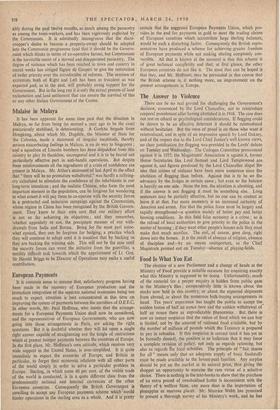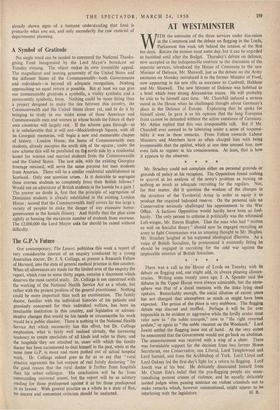Food Is What You Eat
The election of a new Parliament and a change of heads at the Ministry of Food provide a suitable occasion for enquiring exactly what this Ministry is supposed to be doing. Unfortunately, much of the material for a proper enquiry is hidden from public gaze in the Ministry's files ; comparatively little is known about the stocks now held in this country, or about the expected shipments from abroad, or about the numerous bulk-buying arrangements in hand. Ten years' experience has taught the public to accept the sudden bonus of half an ounce here and the sudden withdrawal of_ half an ounce there as unpredictable phenomena. But there is now an uneasy suspicion that the ration of food which we can buy is limited, not by the amount of rationed food available, but by the numbef of millions of pounds which the Treasury is prepared to pay in subsidies. If this suspicion is correct (and it has yet to be formally denied), the position is so ludicrous that it may force a complete revision of policy, not only as regards rationing, but also as regards the food subsidies. The principle of " fair shares for all " means only that an adequate supply of basic, foodstuffs must be made available to the lowest-paid families. Any surplus should be put on the market at its natural price, thus giving the shopper an opportunity to exercise the rare virtue of a selective choice. There is nothing in the text-books to show that the purchase of an extra pound of unsubsidised butter is inconsistent with the theory of it welfare State, any more than is the importation of pineapples or marrons glaces. Mr. Maurice Webb has promised to present a thorough survey of his Ministry's work, and he has
already shown signs of a humane understanding that food is primarily what you eat, and only secondarily the raw material of departmental planning.































































 Previous page
Previous page